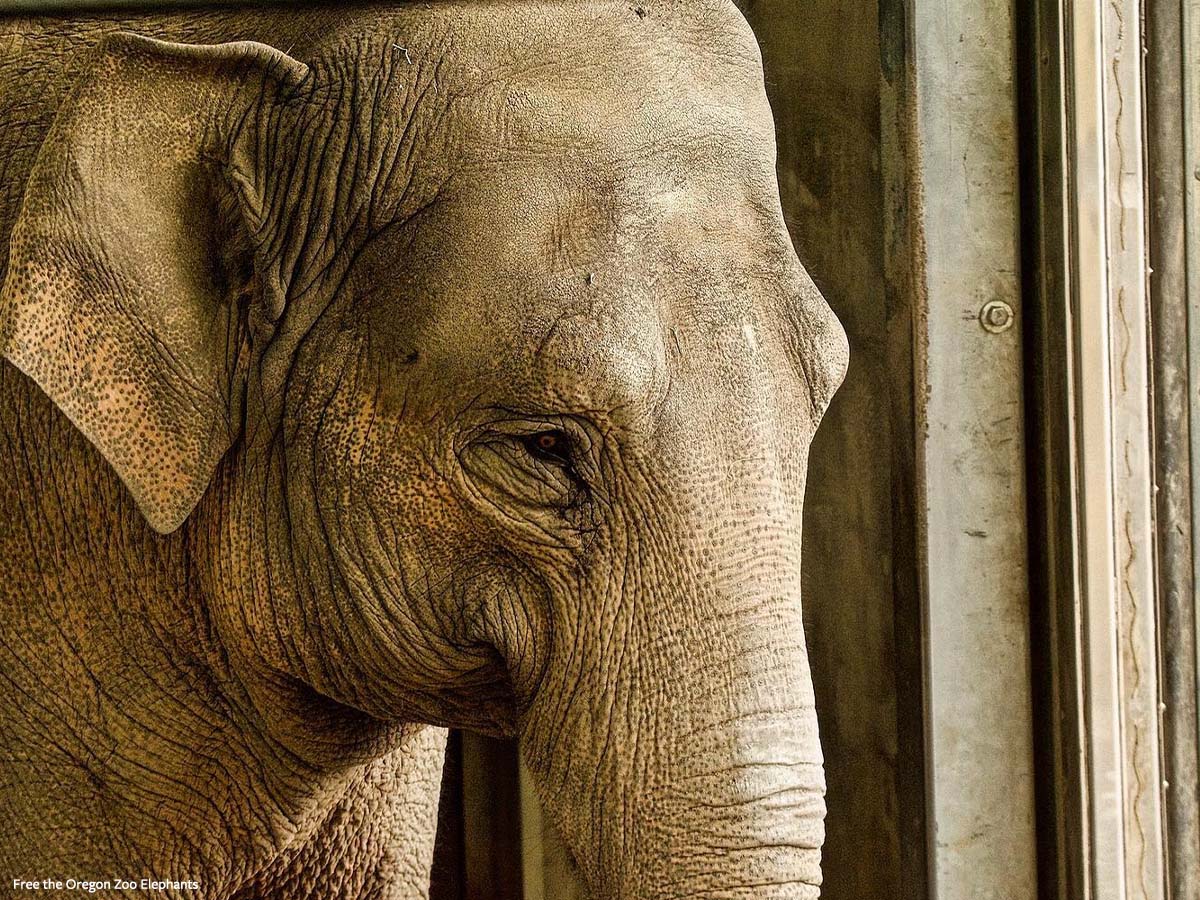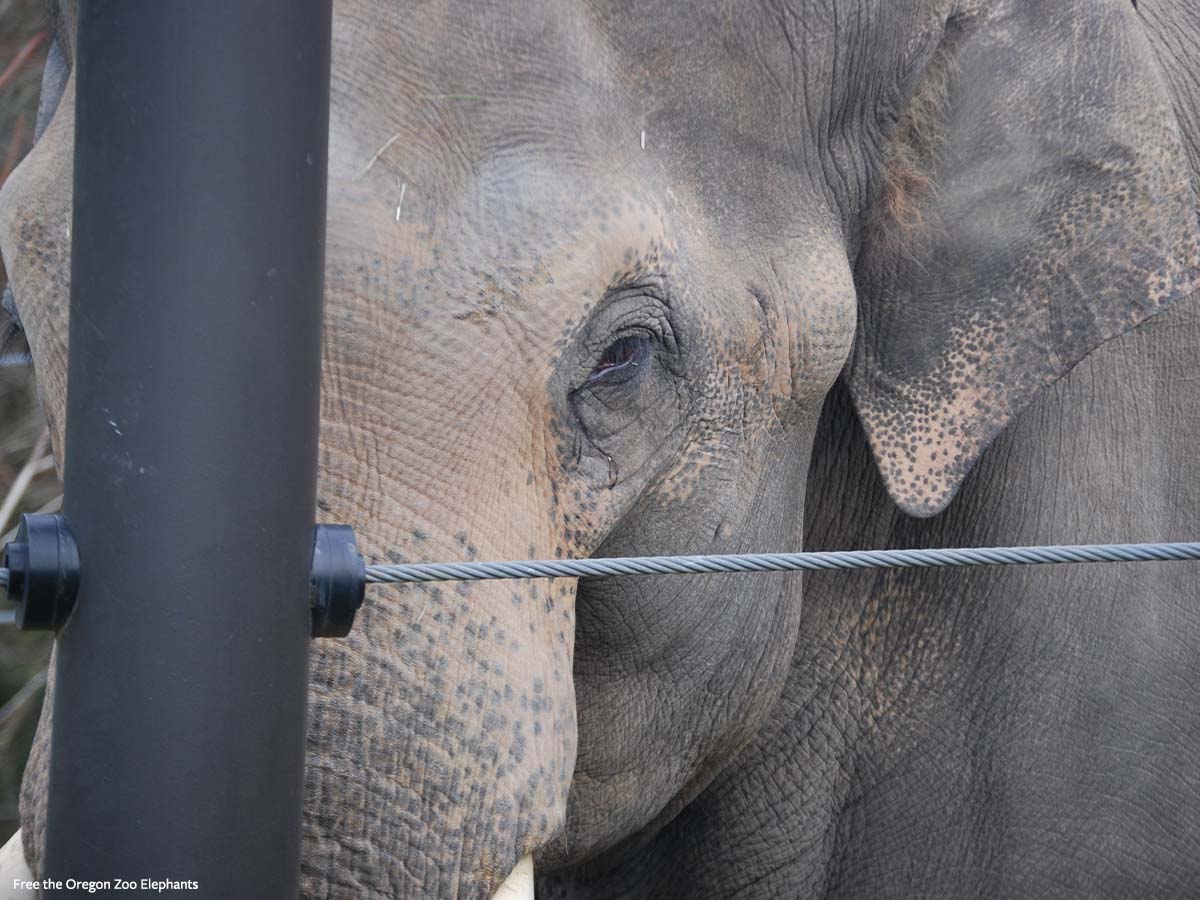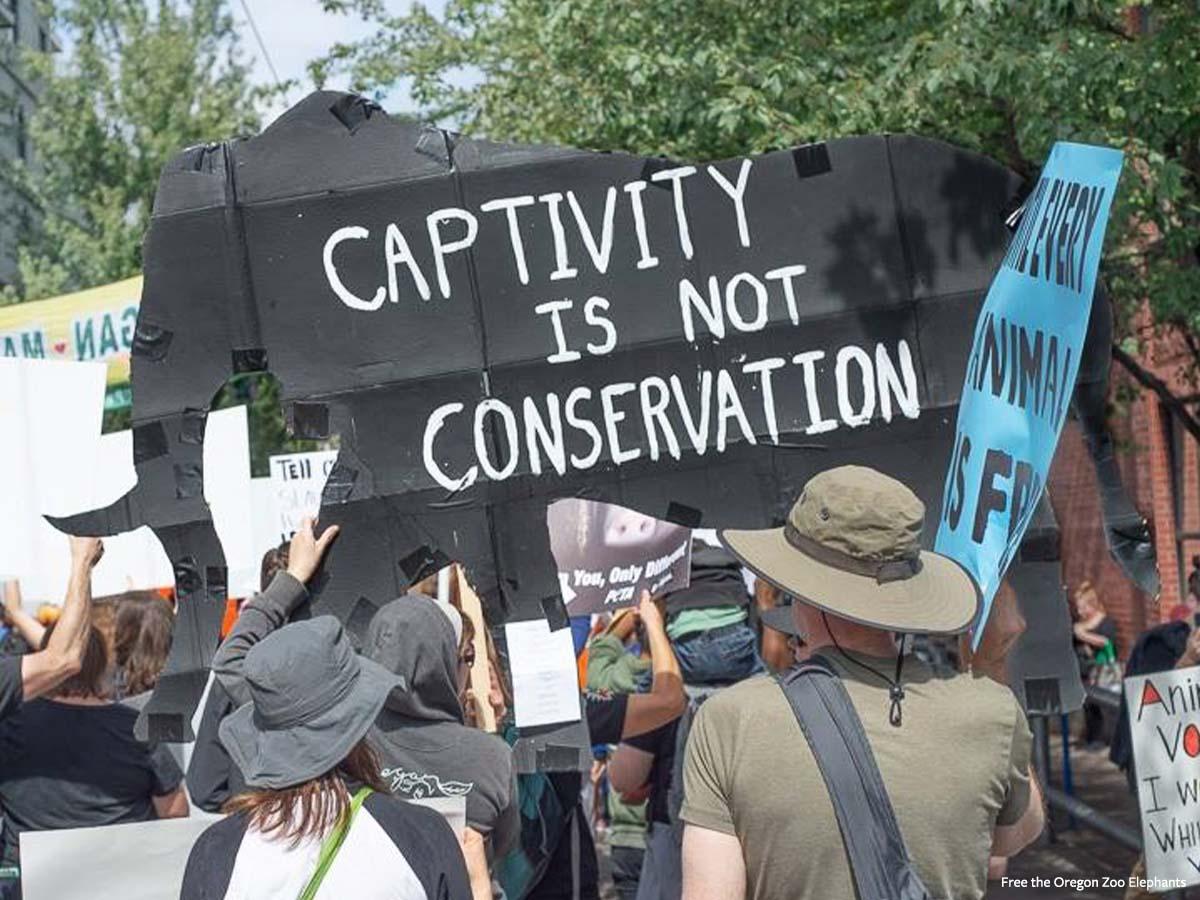Scathing New Report Calls Confinement of Elephants a Legacy of Shame
In Defense of Animals has been calling out zoos for the last few decades for their inability to provide for the complex needs of elephants through our annual Ten Worst Zoos For Elephants list. Now, an exhaustive and well-researched report by the Born Free Foundation confirms our findings and lays to rest every single argument that zoos use to justify their ongoing exploitation of elephants.
Behind the facade of attractive landscaping and the addition of “enrichment” to elephant enclosures, elephants continue to suffer and experience declines in health and numbers in zoos across North America and Europe. The reasons are many yet the end results are the same. Elephants suffer from a myriad of zoo-related diseases and conditions for years until they die, often at a much earlier age than their wild cousins, never having had a chance to roam or forage or choose their friends or experience any semblance of the lives that they were born to live.

How do zoos rationalize this kind of chronic elephant suffering? Primarily, it’s with the conservation con. Born Free's report, Elephants in Zoos: A Legacy of Shame, destroys the conservation argument with an avalanche of evidence-based data. The fact is that elephant deaths far exceed elephant births in captivity, so breeding programs are clearly not working. Zoos often claim to support conservation yet many of these same zoos are loath to admit that they will need to steal more elephants from the wild if they wish to continue to populate their zoos with elephants. Despite some restrictions on importing elephants, zoos still manage to obtain elephants from Africa and Asia. What does this do to conservation efforts in situ? It rips apart elephant families, leads to human/elephant conflicts and yet more devastation of habitat.
The Born Free Report explains that elephants are members of super-keystone species who have a profound positive impact on their habitats and that their presence benefits countless other species. Described as “mega-gardeners of the forest,” the report claims that “elephants disperse more seeds of more species of trees and over greater distances than any other animal on this planet.” Another fascinating fact is that “each adult elephant produces roughly one metric ton of dung per week, 52 weeks per year for decades, which fertilizes soils, feeds invertebrates and enriches biodiversity. The removal of one individual results in a measurable loss to their habitat.” More and more ways that elephants contribute to their ecosystems are being discovered every day. For instance, a study published by the International Monetary Fund suggests that the “average carbon sequestration value produced by forest elephants may be upwards of 1.75 million USD over their lifetimes.”
Take note that as of yet, no elephants have been returned to the wild from North American or European zoos. However, there is one plan in the works. The Aspinwall Foundation announced in July 2021 that it aims to transport its herd of 13 elephants currently residing in an 8-acre enclosure at Howletts Wild Animal Park in Kent, UK, to Kenya. This is a promising first attempt at rewilding elephants. We will report on the progress of that development as it unfolds.

The Born Free report highlights the damaging effects of zoo life on elephant health and welfare; the vastly inadequate habitat space, the hard surfaces that often cripple elephant feet, and the lack of choice and familial connections, both of which are so critical to elephants. The report ends with some suggested solutions: phase out all elephant exhibits, end all captive breeding, end the transport of elephants between zoos which is transfer abuse unless performed for welfare concerns, and send as many as possible to accredited sanctuaries.
Will Travers, cofounder and executive president of Born Free concludes that “More baby steps are not the answer. Elephants do not belong in zoos. Let us be bold. Let us be brave. Let us be principled. Let us stop this now.”
We wholeheartedly agree.
Be sure to check out our 2021 Ten Worst Zoos for Elephants list if you haven’t already and please donate to help us continue this vital work to free elephants from lifetimes of misery in captivity.


